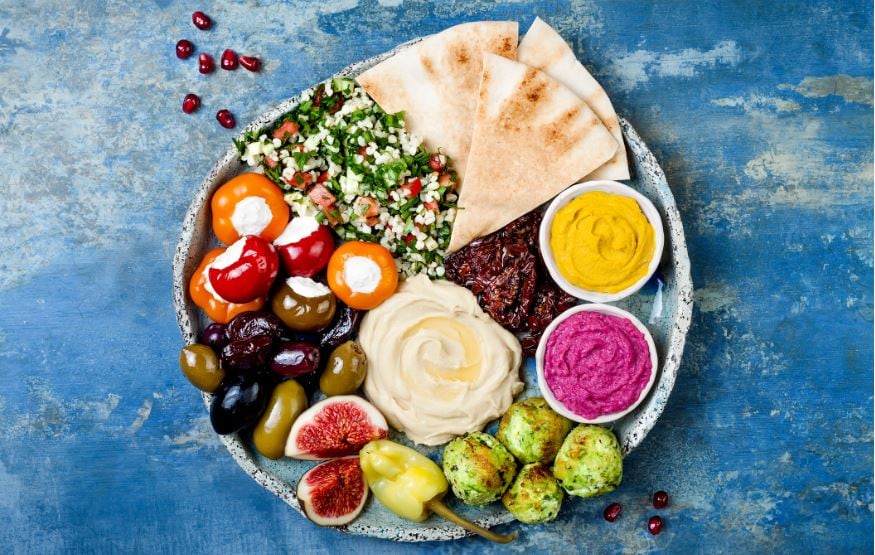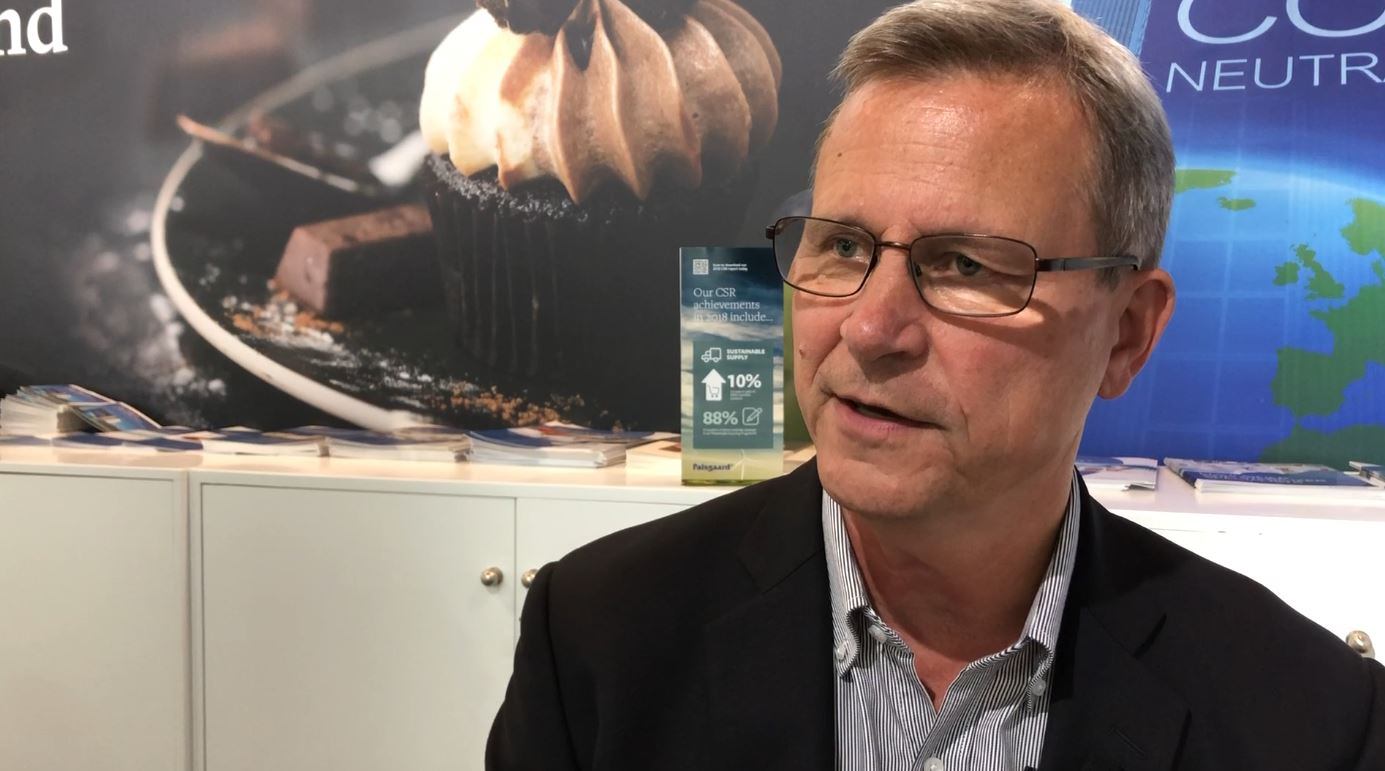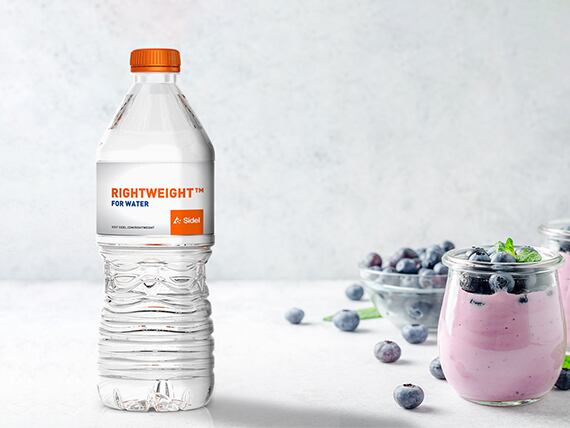Heads of Qatar’s largest dairy firm named in lawsuit amid jihadist funding allegations
The Chairman and CEO of Qatar’s largest dairy firm Baladna have been named in papers filed in the British High Court, which alleges they helped fund the al-Qaeda affiliated al-Nusra Front, a Syrian jihadist organisation.
According to the court documents seen by FoodNavigator-Asia, Moutaz Al-Khayyat and Ramez Al-Khayyat were listed as the first and second defendants in a claim made by eight Syrian citizens via the High Court of Justice, Queen’s Bench Division in London.
The Syrian claim they lost homes and businesses, and suffered physical and mental harm, because of Al-Nusra’s activities
Middle East to lead global health and wellness packaged food growth over next five years: Study
The Middle East and North African (MENA) region (excluding sub-saharan Africa) has been predicted to lead the global health and wellness packaged food market growth over the next five years, according to an international study.
MENA beat out its closest competitor sub-saharan Africa (8.8%) by just 1.1% with a predicted growth rate of 9.9%, but in terms of absolute value analysts predicted that MENA will be worth three times more by 2023 at US$31.5bn as opposed to the latter’s US$10.7bn.
According to Euromonitor’s Gulfood Industry Outlook Report 2019, this was partly attributed to an expanding middle class ‘who, with a higher income, are more likely to spend on health and wellness products that are often priced higher than more conventional packaged food’.
The new Saudi Arabia: Consumers increasingly seeking better value and more healthy products
Saudi Arabian consumers are becoming increasingly savvy when seeking out food and beverage bargains, and are also demanding new products with a stronger health focus.
Presenting at Gulfood 2019, OZCO Research Manager Hamza Nizal told the floor that what has been termed ‘The New Saudi Arabia’ and the nation’s vision 2030 will lead to a stronger emphasis on the local manufacturing industry, and a concerted drive to attract foreign investment.
“[Not only this], the profile of the Saudi consumer is also evolving,” said Nizal.
Sugar beat? UAE to impose 50% excise tax in 2020 on products containing sugar and sweeteners
In a move to reduce consumption of unhealthy products and prevent chronic diseases, the UAE Government will impose a fresh 50% excise tax on a raft of products containing added sugar or sweeteners, with officials hoping it will reduce consumption of ‘unhealthy products’ and prevent chronic diseases.
The tax will take effect on January 1, 2020, and will include any SSB (sugar sweetened beverage) product containing sugar or sweeteners, and is produced as either a ready-to-drink beverage or as concentrates, gels, powders, extracts, or any other form that can be converted into a SSB.
This is an extension to the list of excise taxable products after the first in 2017, with 50% tax on carbonated drinks, and 100% tax on energy drinks.
No more chocolate, soft drinks, or fries: UAE bans nine 'unhealthy' foods in school canteens
Last week, the UAE Ministry of Education published a list of food items that are no longer allowed for sale in schools, including chocolate, soft drinks and fries.
Students were also told to refrain from bringing those items to schools.
Aimed at helping students adopt a healthy diet, the policy will be administered across all seven emirates.
UAE packaging waste: Coca-Cola, PepsiCo, and Unilever sign deal with government
The UAE’s Ministry of Climate Change and Environment (MOCCAE) has teamed up with a coalition formed by NGOs, local and global food firms, including MNCs such as Coca-Cola, Nestle, PepsiCo, P&G, and Unilever in combating local plastic and packaging waste pollution.
The coalition, also known as the Coalition of Innovation in Recycling towards a Closed Loop Economy (Coalition Circle) will run a pilot project in Abu Dhabi aimed at improving plastic waste collection.
The project will examine the economic and environmental impact of plastic and other types of packaging.
Disrupting the meat industry: Global Food Industries ready to launch plant-based burgers
UAE food firm Global Food Industries (GFI) has announced plans to launch its plant-based ‘not-chicken and not-beef burgers’ in November.
The products will be launched under its Healthy Farm brand and will first be available in the horeca or food service industry, which include hotels, restaurants, fast food, and casual dining.
Supermarket retail will begin in 2020. The burgers contain pea-protein, quinoa and kale, making it 30% higher in protein and 90% higher in fibre than traditional meat burgers.
Health tax in Qatar: Price hikes as 100% levy on alcohol, energy drinks, and pork introduced
Qatar has implemented a Selective Tax Law on “health-damaging” products, including sugary and energy drinks, and tobacco products.
A 100% tax is imposed on alcohol, energy drinks, and pork, while the tax rate for sugary drinks is 50%, the country’s Ministry of Finance said as part of its budget announcement.
The law was implemented on January 1.
Turkey tops tea drinking chart: Each Turk drinks an average of 1,300 cups of tea per year
Turkey is the world’s largest tea drinking country, with each Turk consuming an average of 1,300 cups of tea per year.
Turks consume around three to five cups of tea daily while this number increases to 10 cups during winter, Serdar Ersahin, the head of an Istanbul-based coffeehouse association told local media Anadolu Agency.
Citing information from the International Tea Committee report, he added that Turkey was the largest tea consuming country.
More tax in the Middle East: Oman joins Saudi and Qatar in introducing tax on energy and soft drinks
Oman is joining other GCC states, including Saudi Arabia, the UAE, and Qatar in implementing a selective tax on energy drinks, soft drinks, alcoholic beverages, and tobacco.
Similar to Qatar, it has added pork meat into the list of items to be taxed.
The tax rate for tobacco, pork, alcoholic beverages and energy drinks is set at 100% while that of soft drinks is 50%, according to an announcement by Oman’s Secretariat General for Taxation (SGT).




